It is interesting to note that Henry James, one of the most celebrated mainstream authors of the 19th century on both sides of the Atlantic, was also, throughout his illustrious career, attracted to the much-maligned ghost story genre. However, he was not fond of literature’s stereotypical ghosts, what he termed the old-fashioned ‘screamers’ and ‘slashers’. Rather, he preferred to create ghosts that were eerie extensions of everyday reality: ‘the strange and sinister embroidered on the very type of the normal and easy’ as he put it. The Turn of the Screw – James’ most famous entry in the supernatural genre – is no exception to this formula. The novella has had differing interpretations, often mutually exclusive. Many critics have tried to determine the exact nature of the evil hinted at by the story – are the story’s ‘ghosts’ an objective reality or simply a creation of the troubled protagonist’s mind? The author himself was little help on what has become a long-standing critical dispute about the reality of the ghosts and the sanity of the story’s heroine – in famously ambiguous terms James once described The Turn of the Screw as ‘a trap for the unwary’.
The story’s narrator is a young governess, sent off to a country house, Bly, to take charge of two orphaned children. She has been engaged by their uncle, a handsome man to whom she feels attracted, on the understanding that she takes all responsibility for the children and the entire household (typical bloke you might think at this point!). She finds a pleasant house and a comfortable housekeeper, Mrs Grose, while the children, Miles and Flora, are unusually beautiful and charming. But she soon begins to feel the presence of intense evil, and sees the figure of the ex-valet Peter Quint and that of her own predecessor Miss Jessel. In fact they are both dead, and she learns of the guilty liaison that existed between them. For the young woman these apparitions emanate a fearful wickedness and she becomes convinced that, despite their denials, Miles and Flora are communicating with them. These terrible figures have returned to claim the children, to draw them into their web of sin and evil, and the governess is determined to exorcize them. Events build up to a dramatic and shattering conclusion, after which it is very much left to the reader to decide whether these ghosts and their designs exist for anyone else in the story, or whether they are simply the hysterical fantasies of the young governess.
The Turn of the Screw brims over with all sorts of allusions and portents. The imagery is reminiscent of the gothic genre and the emphasis on old and mysterious buildings throughout the novella reinforces this motif. James also relates the amount of light present in various scenes to the strength of the supernatural or ghostly forces apparently at work. The governess refers directly to The Mysteries of Udolpho and indirectly to Jane Eyre, evoking a comparison of the governess not only to Jane Eyre’s protagonist, but to Bertha, the madwoman confined in Thornfield. The central debate about whether the ghosts exist or not is one that rumbles on to this day – there is considerable evidence in the story to support either view. For example, the fact that the governess is able to give a point-by-point description of Quint may seem to indicate that she has actually seen something; but there is also the possibility that she may have acquired this information in non-supernatural ways. Some have attributed the governess’s possible delusions to her immediate infatuation with the children’s uncle, while one critic has put forward an even darker interpretation – that Quint and/or Miss Jessel abused one or both of the children and ‘lives on’ through them. One interesting result of the widely differing views on the story is that perhaps no other novel or short story has inspired such contrasting film and television interpretations – it is almost impossible to find any version of The Turn of the Screw that bears any relation to any other in terms of theme, content and acting. Click to read an extract from The Turn of the Screw – I hope that this convinces you to seek out the whole of the story and make up your own minds about what it is really about!

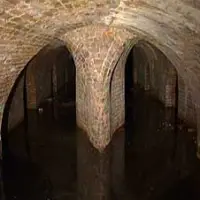

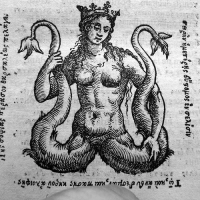
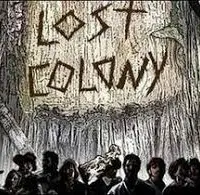

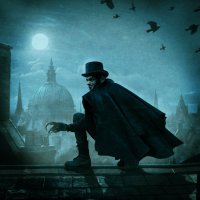






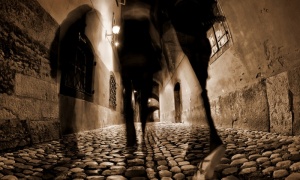


Hi,
I remember writing an essay for my GCSE in English on Turn of the Screw – I can still remember my english teacher telling me, ‘just look at how Henry James turns and turns that screw in the reader’s mind!’
I’ve just had to order a copy of the book from Amazon to refresh myself about what a good yarn it was.
Regards.
Nicola
Lucky you – the only essays I ever got to do for English GCSE were on Shakespeare! Agree that James is an excellent writer 🙂
I read that book when I went camping years ago. Sure made our campsite a lot more sinister than it was.
Ah! You’ve reminded me that I want to read The Turn of the Screw. I put it on my metal to-do list a couple of months ago, after watching Deborah Kerr in The Innocents (1961). From what you say here, I’d say it’s a good adaptation.
http://www.imdb.com/title/tt0055018/
Excellent!
this is awesome!
Thank you, I’ve just been searching for info about this subject for ages and yours is the greatest I’ve discovered so far. But, what concerning the conclusion? Are you positive in regards to the source?|What i don’t realize is actually how you’re now not actually a lot more smartly-preferred than you might be now. You are so intelligent.